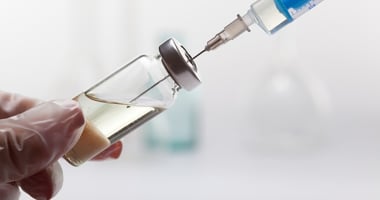FDA Warns About Compulsive Behaviors Reportedly Linked to Aripiprazole
 |
The announcement comes after a search of the FDA Adverse Event Reporting System (FAERS) database and the medical literature in the 13 years since the approval of the first aripiprazole product (Abilify) in November 2002 revealed a total of 184 case reports (167 U.S. cases, which included adults and children) in which there was an association between aripiprazole use and impulse-control problems. The specific impulse-control problems reported include pathological gambling (n=164), compulsive sexual behavior (n=9), compulsive buying (n=4), compulsive eating (n=3), and multiple impulse-control problems (n=4).
All 167 FAERS cases reported that the patients experienced new urges leading to compulsive behavior only after starting aripiprazole treatment, and within days to weeks of reducing the dose or discontinuing aripiprazole treatment, all of the patients reported that the intense urges resolved. None of the patients had a history of pathological gambling, compulsive sexual behavior, binge eating, or compulsive shopping prior to starting aripiprazole treatment, and none were reported to have concurrent substance abuse disorder or symptoms of mania at the time they developed the impulse-control problems.
“Although pathological gambling is listed as a reported side effect in the current aripiprazole drug labels, this description does not entirely reflect the nature of the impulse-control risk that we identified,” the FDA stated in the announcement. “As a result, we are adding new warnings about all of these compulsive behaviors to the drug labels and the patient Medication Guides for all aripiprazole products,” including Abilify, Abilify Maintena, Aristada, and generics.
Charles O’Brien, M.D., chair of the DSM-5 Work Group on Substance-Related and Addictive Disorders, told Psychiatric News that while he and other experts in the work group were aware of case reports involving similar side effects to medications for Parkinson’s disease such as L-DOPA, such side effects in patients treated with aripiprazole were not discussed. “As of what I know now, the warnings seem reasonable so that we can get a better idea of the prevalence of these side effects,” he said. O’Brien is a professor of psychiatry at the Perelman School of Medicine at the University of Pennsylvania.
The FDA advises health care professionals to make patients and caregivers aware of the risks associated with aripiprazole when prescribing, ask patients who are taking the medication specifically about any new or increasing urges, and closely monitor patients at higher risk for impulse-control problems, including patients with obsessive-compulsive disorder, bipolar disorder, substance use disorder, alcohol use disorder, or other addictive behaviors. Any side effects involving aripiprazole should be reported to the FDA MedWatch program.
Join the ‘Awareness Day Live!’ Online Discussion Tomorrow
The Substance Abuse and Mental Health Services Administration invites you to participate in its National Children’s Mental Health Awareness Day 2016 webcast “Finding Help. Finding Hope” tomorrow (May 5) at 7 p.m. EDT. Awareness Day Live! is an opportunity for you to join an online discussion about how communities around the country are connecting children, youth, and young adults with mental disorders (including substance use) and their families to behavioral health services and supports. Use the hashtag #HeroesofHope to share your thoughts, questions, and strategies for improving access to services and supports. Sign up to watch the live national event.





